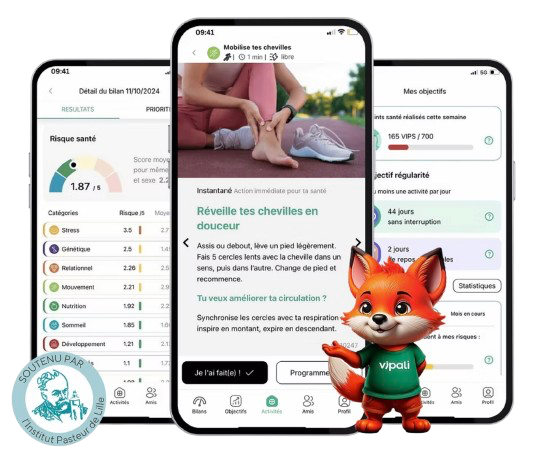Long considered the preserve of Buddhist monks or seasoned yogis, meditation is now a part of everyday life for millions of people around the world. In open spaces and living rooms alike, meditation is used to improve mental well-being, boost concentration or simply offer a moment's respite. So why is this age-old practice so appealing? What are its real benefits, and how do you get the most out of it?
Why meditate? The proven benefits of meditation

There is growing scientific consensus on the virtues of meditation. An article from the Montpellier Faculty of Medicine lists some of the most widely observed benefits:
Improved concentration and memory
Regular meditation promotes attention and memory. Training the mind to focus on the present moment strengthens its ability to maintain attention and avoid distractions. Studies have shown that meditation can increase gray matter in areas of the brain linked to learning and memory.
Find out more about our tips for quickly regaining concentration
Reduced stress and anxiety
Meditation helps to regulate stress and anxiety by raising awareness of breathing and bodily sensations. This simple practice, accessible to all, including children, helps reduce the risk of depression by calming the nervous system and promoting a state of inner calm.
Boosting the immune system
By acting on pro-inflammatory genes, mindfulness meditation can strengthen the immune system. It promotes better oxygenation of the body, improves the functioning of the hormonal system and helps regulate pain sensitivity. As a result, it contributes to greater resistance to illness and faster recovery from periods of stress.
Meditation at work: more than a trend, a real performance lever
Incorporating meditative breaks into the workday allows you to :
- Preventing burn-out
- Increase cognitive efficiency
- Better manage stressful meetings and deadlines
- Improving relations between colleagues
Companies such as Google, SAP and L'Oréal have already integrated meditation or mindfulness sessions into their corporate culture. Why shouldn't you?
At home: a tool for refocusing and serenity
In the evening, meditation can become a decompression chamber after a busy day. Refocusing, calming the flow of thoughts, cultivating gratitude or simply reconnecting with your breathing: these are all habits that promote a more balanced, calmer life.
How to meditate properly Our tips for a simple start

You don't need a gong or a zafu cushion to get started. Here are a few practical tips:
- Start small: There's no need to aim for an hour of meditation. 5 to 10 minutes is enough to get you started.
- Choose your moment: morning, lunch break, before bed... Try out different times and see what works best for you.
- Use an app: apps like Petit Bambou, Headspace or Insight Timer guide beginners through short, effective sessions.
- Stay regular: Regularity is more important than duration. Even 5 minutes a day can make a difference.
- Be easy on yourself: Thoughts running through your head? That's normal. Observe them, then gently return your attention to your breathing.
Try to meditate for 5 minutes a day for a week. Note how you feel. Less tension? More clarity? Chances are you'll want more.
Meditation is not a magic wand, but it can become a pillar of your mental well-being. Accessible to all, it requires little time, no equipment, and offers concrete benefits. Whether you want to be more focused at work, more serene at home or simply feel better in your head, meditation deserves a place in your daily life.
By Candice Lhomme




















